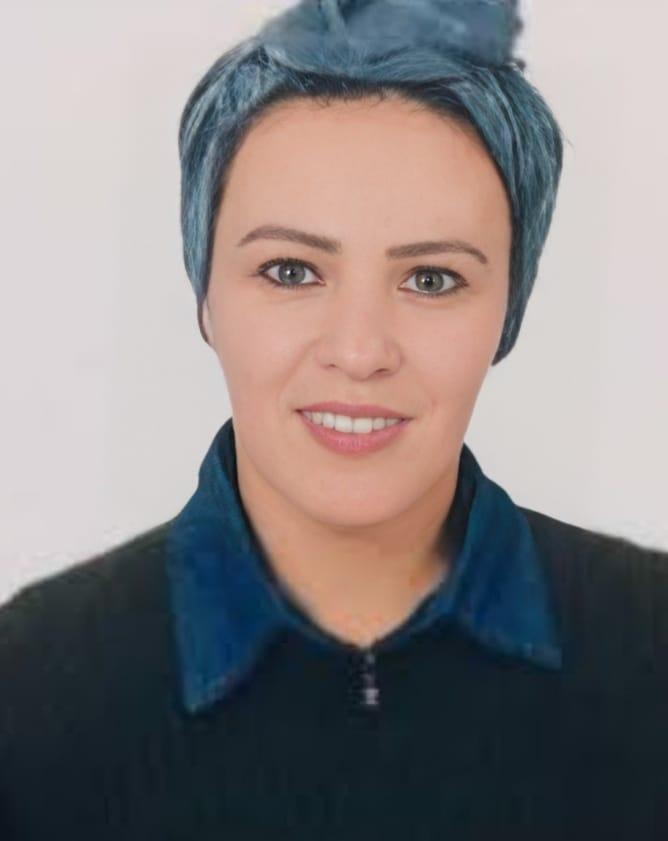Dr. Enas Badr
Consultant in Pulmonary Diseases and Allergies

- Name: Dr. Enas Badr
- Phone: 0115 323 0307
- City: Cairo
- Area: First Settlement New Cairo
🩺 Dr. Enas Badr
Consultant in Pulmonary Diseases and Allergies
Head of the Department at Abbassia Chest Hospital
🔬 Specializations and Services:
Pulmonary Diseases
(Yellow sputum, coughing with phlegm, painful coughing)
Allergy
(Diagnosis and treatment of respiratory diseases related to allergies, such as asthma and allergic rhinitis)
🔬 Bronchoscopy
(Performing bronchoscopy to diagnose respiratory problems)
💉 Intensive Care
(Monitoring and treating patients in intensive care units, especially those with severe respiratory issues)
🩻 Interventional Radiology
(Using radiological techniques to diagnose and treat advanced pulmonary conditions)
💨 Available Services:
Inhalation Sessions for Pulmonary Function Tests
(Assessing lung capacity and detecting any respiratory health issues)
🩺 Medical Consultations
(Comprehensive consultations on pulmonary diseases and available treatments, with thorough follow-up care)
🎓 Academic Qualifications:
PhD in Pulmonary Diseases and Allergies
From the Faculty of Medicine, Ain Shams University, 2015
Member of the European Respiratory Society
(Membership allows Dr. Enas Badr to stay updated with the latest research and techniques in pulmonary diseases)
🏥 Hospitals She Works At:
Abbassia Chest Hospital (Head of Department)
Nesaim, Tabarak, Seychelles, and Pearl Hospitals in New Cairo
💰 Consultation Fee and Waiting Time:
Consultation Fee: 500 EGP
Waiting Time: 12 minutes
Follow-up Consultation (within 14 days): 100 EGP
📍 Location:
Address: Ozone Medical Mall, Abdel Rahman El-Rafie Street, Industrial Area, First Division, New Cairo
📞 Contact for Booking and Inquiries: 0115 323 0307
🎁 Special Discount for Clinic Patients
(Special discount offered for clinic patients on certain services and treatments)
FAQ
Pneumonia is an infection in the lungs, and it shows through the following symptoms:
1. Cough: It could have mucus or it might be dry.
2. High fever: Fever with chills (feeling cold with heat).
3. Difficulty breathing: Feeling like you can't take a deep breath.
4. Chest pain: The pain gets worse when you breathe deeply or cough.
5. Fatigue and exhaustion: Feeling extremely tired, unable to get up.
6. Loss of appetite: Not feeling like eating as usual, and sometimes feeling nauseous.
7. Excessive sweating: Especially at night.
8. Muscle aches: Feeling body aches like you have the flu.
9. Mental confusion: Older adults may feel confused or have trouble thinking clearly.
Note: These symptoms can be severe or mild depending on age and health condition.
The recovery time from pneumonia depends on the severity of the condition and the patient's age:
1. Mild cases: Recovery usually takes 1 to 3 weeks.
2. Severe cases or elderly patients: Recovery may take 6 to 8 weeks or longer.
Tips for faster recovery:
1. Get plenty of rest.
2. Stay hydrated by drinking lots of fluids.
3. Follow your doctor’s instructions and take all prescribed medications.
If complications arise or symptoms persist for an extended period, consult your doctor immediately to prevent further health issues.
Pneumonia is an infection that affects the lung tissue itself. This means the air sacs in the lungs become inflamed and may fill with fluid or pus. Its symptoms are clear and include:
1. High fever with chills.
2. Severe coughing, often accompanied by mucus or phlegm.
3. Difficulty breathing, and sometimes chest pain during deep breaths or coughing.
Bronchitis, on the other hand, is an inflammation of the tubes that carry air to the lungs (bronchial tubes). It’s often caused by viral infections or continuous smoking. The main symptoms are:
1. Persistent cough (which may be dry or produce mucus).
2. A feeling of tightness or mild pain in the chest.
3. Wheezing sounds when breathing.
4. General fatigue and exhaustion.
In summary, pneumonia directly impacts the lungs and tends to be more severe, while bronchitis affects the airways leading to the lungs and doesn’t involve the lung tissue itself.
Yes, pneumonia can be contagious, especially if it's caused by bacterial or viral infections. The infection can spread from one person to another through:
1. Coughing and sneezing: From an infected person.
2. Direct contact: Such as shaking hands with someone who is sick.
3. Contaminated air: Inhaling air that contains germs.
To reduce the risk of infection, it’s important to wash your hands frequently, avoid direct contact with sick individuals, and wear a mask if you’re in crowded areas or around infected people.
Symptoms of bronchitis may include:
1. Persistent cough: It can be dry or accompanied by mucus.
2. Difficulty breathing: You might hear wheezing (a whistling sound when breathing).
3. Chest discomfort: A feeling of tightness or heaviness in the chest.
4. Fever: A slight increase in body temperature.
5. General fatigue: Feeling tired and drained most of the time.
6. Nasal congestion or sore throat: A stuffy nose or throat pain might occur.
Note: Bronchitis is often caused by a viral or bacterial infection. The cough may persist even after other symptoms improve.
Bronchitis (acute bronchial inflammation) is usually not dangerous if treated properly. However, in some cases, complications can occur, such as:
1. Chronic bronchitis: If it lasts for a long time or if flare-ups are frequent.
2. Underlying health conditions: Conditions like asthma or heart diseases may increase the risk of complications.
3. Age and weakened immune system: The body may be less able to fight off infections.
4. Rare complications: Such as progression to pneumonia or breathing difficulties.
It is important to consult a doctor when symptoms appear to ensure appropriate treatment and prevent complications.
